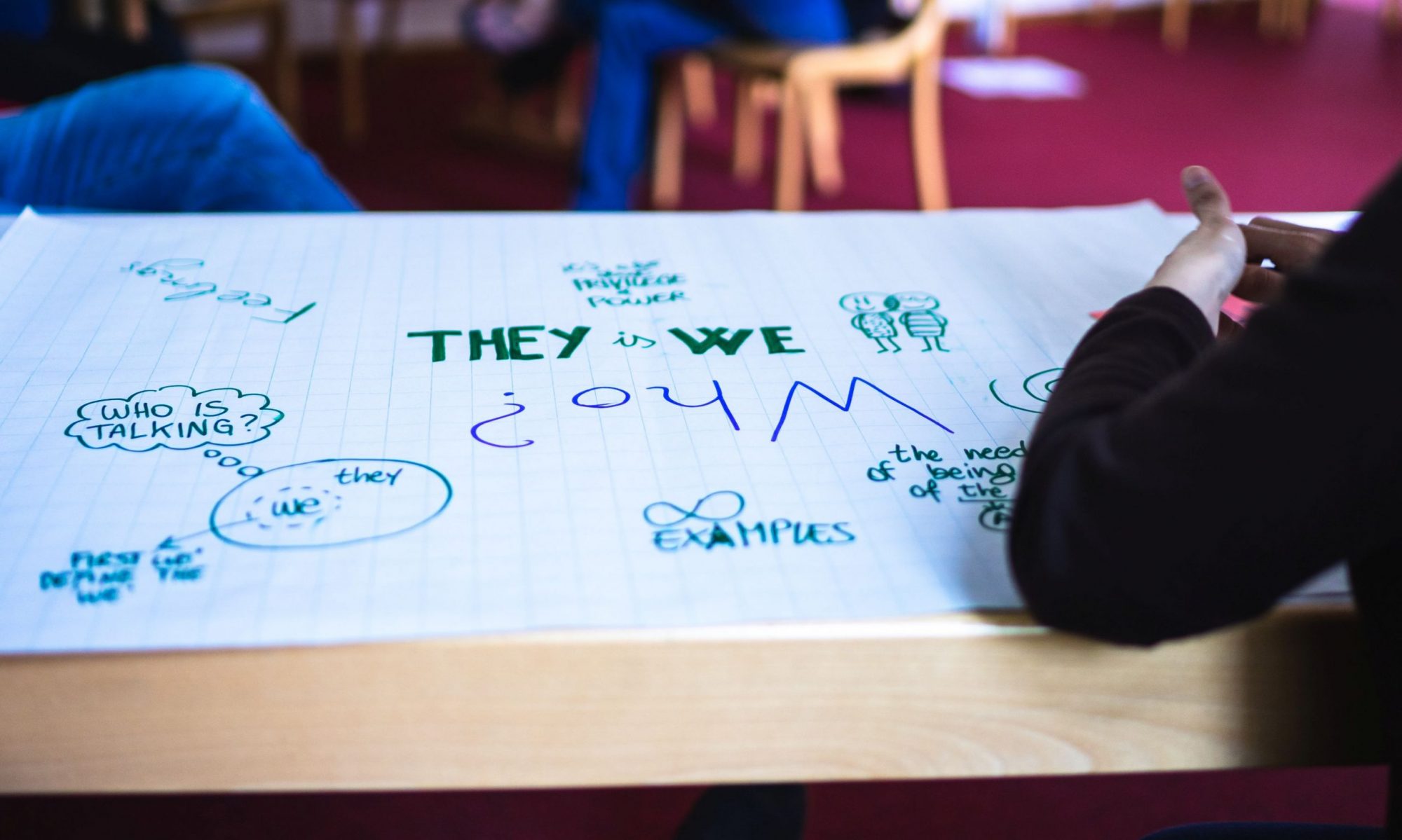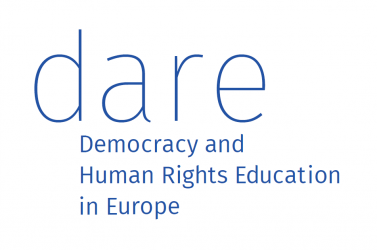“I am convinced that there is an absolute connection between lack of education, democracy and human rights and an increase in poverty and social exclusion. Conversely, if you increase education, democratic participation and respect for human rights, you will decrease poverty.”
David Martin (MEP, Committees: International Trade, Human Rights) at his opening speech on DARE s conference 2009, March 5th
Recommendations for policy makers
1. A lack of democracy leads to poverty and social exclusion. Likewise, solely economic measures will not lead to more social cohesion.
2. The trend towards “vocationalisation” of Education for Active Citizenship has to be counteracted towards building citizenship skills. Citizenship skills acquired through sound civic and human rights education are no “fluffy stuff” merely decorating a basic layer of “hard” job-related skills. Citizenship skills are basic for democratic, cohesive and economically strong societies. Policy measures to fight social exclusion and poverty should therefore set the focus on the people and their opportunities to participate in life long and life wide learning. Non formal adult education in this regard is of crucial importance and NGO´s play a key role here.
3. Mainstreaming citizenship education leads to more social cohesion: National and EU programmes in adult education should set a specific focus on civic and human rights education and democratic participation. Both member states and the EU are asked to endorse the European Charter for Human Rights Education and Education for Democratic Citizenship as drafted by the Council of Europe.
4. “Nothing about us without us”: The impacts of general adult education programmes should be defined with the learners, not for the learners. Measures taken on the political level – be it the European or the member states level – must be in line with the demands of the people, especially the vulnerable groups. The EU can not reduce the strategies for tackling social exclusion and poverty to a genuine economic approach counteracting the current economical crisis. It was the existing policy instruments and the focus on merely economic needs that led to this crisis. A more cohesive society will not automatically be the result of a revitalized market.
5. The attention to education for democratic citizenship and human rights in the new EU member states has to be re-established, as civic education can not be limited to the accession period. Experience from all Central European countries that joined the European Union show that with the accession done, civic education programmes were shut down. The result was not only a lack within the educational systems but a shrinking participation in all elections.
6. Premature and short-term political activism does not lead to long-term successes: A shared understanding of the reasons for poverty in Europe is a precondition for any shared European strategy to combat poverty and social exclusion.
7. If social cohesion is really important for the EU then the political level should reflect more intensive on the interrelation of increased xenophobic, homophobic and right-wing-extremist tendencies that threaten and exclude vulnerable groups all over Europe and the lack of support for non-formal civic and human rights education in all member states.
8. Sustainable funding and political commitment for education for democratic citizenship and human rights is crucial for building long-term capacity and maintaining high-quality results.
Recommendations for NGO practitioners
Educational NGO´s have a crucial role to play in eradicating poverty: They must identify root causes of poverty and social exclusion, and employ a bottom-up approach with individuals and groups experiencing poverty and social exclusion: “Nothing about us without us”.
1. Put people at the centre of the agenda: Inclusive approaches in education for democratic citizenship and human rights in life long learning are key to success, rather than stigmatizing “excluded” people. Poverty reduction and social exclusion is not limited to a certain age group but a raising challenge for life long and life wide learning.
2. Approaches of non-formal education for human rights and citizenship education life long learning have to come up from the grassroots, rather than employing top-down approaches and preach to the converted. Several existing best practices in community education demonstrate how civic education based on peoples´ needs lead to more social cohesion (eg. Community Education Network – AONTAS Ireland; Young Muslim Leadership Network – Citizenship Foundation UK, EU-Meth: Europa mit Methode – dvv/EuropeHouse Aurich, Germany; )
3. EDC/HRE has to embrace diverse learning environments in life long learning, closely linked to the real lives of learners (empowerment at the workplace, community education, family and peer learning etc.) Community learning is well suited to empower local communities to tackle social exclusion.
4. The full range of EDC/HRE tools and methods has to be based on learners´ needs. In adult education, tools and methods should be developed with the learners, not for the learners. In this regard non formal education has to critically reflect if a measuring competences and validation oriented approach to fit to the labour market is the only practicable way.
5. Nothing about us without us! Leadership and participation skills of groups at risk of social exclusion have to be strengthened, in order to make their voice be heard. Likewise NGO leaders need to be skilled up to speak the language of policy makers – and vice versa. The structured dialogue with policy makers should be significantly increased.
Background about the conference
“Tackling poverty and Social Exclusion in Europe through Education for Democratic Citizenship and Human Rights Education in Adult Learning” (Glasgow, March 4-5, 2010)
This European conference provided a forum for more than 170 stakeholders in field of Human Rights Education and Education for Democratic Citizenship (HRE/EDC), among them practitioners in formal and non-formal education, NGO activists, educational experts, political scientists and policy makers from various levels ranging from city councils to the European Parliament and the Council of Europe.
The conference aimed to contribute to the development of coherent European framework policies to combat poverty and social exclusion through HRE/EDC in lifelong learning and emphasize the role of NGOs in the field. The recommendations were drafted by 170 European stakeholders and their constituencies.
Conference organisers:
- DARE – Democracy and Human Rights Education in Europe
- BEMIS – Black and Ethnic Minorities Infrastructure in Scotland

